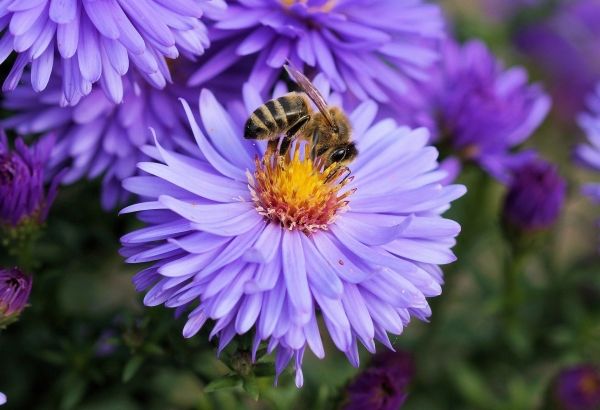A new analysis of thousands of native and nonnative Michigan bees shows that the most diverse bee communities have the lowest levels of three common viral pathogens.
University of Michigan researchers netted and trapped more than 4,000 bees from 60 species. The bees were collected at winter squash farms across Michigan, where both managed honeybee colonies and wild native bees pollinate the squash flowers.
All but one species—Apis mellifera, the common European honeybee—are native bees. The number of bee species found at each farm ranged from seven to 49.
Consistently, lower virus levels were strongly linked to greater species richness among the local bee communities. The study was published online Feb. 11 in the journal Ecology.
Read more at: University of Michigan
Photo Credit: NickRivers via Pixabay


